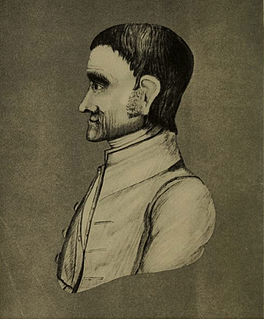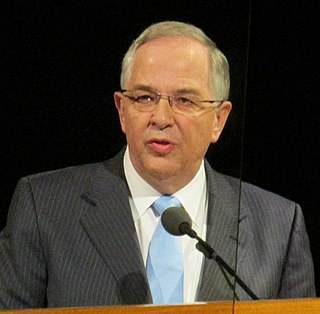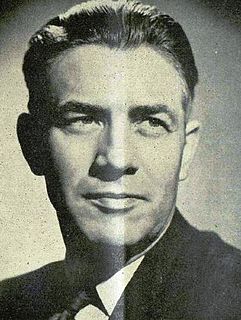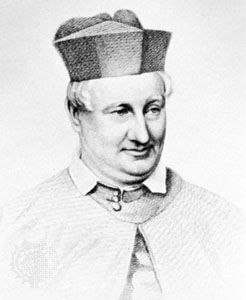A Quote by John Wesley
They (the creatures) encourage us to imitate Him whose mercy is over all His works. It may enlarge our hearts toward these poor creatures to reflect that not one of them is forgotten in the sight of our Father which is in heaven.
Related Quotes
It is sweet to remember that the exaltation of Christ in heaven is a representative exaltation. He is exalted at the Father's right hand, and though as Jehovah He had eminent glories, in which finite creatures cannot share, yet as the Mediator, the honours which Jesus wears in heaven are the heritage of all the saints. It is delightful to reflect how close is Christ's union with His people. We are actually one with Him; we are members of His body; and His exaltation is our exaltation.
You will see the mercy of God toward His creatures, how He has provided that which is required, in proper proportions, and treated all individual beings of the same species with perfect equality. ...for it is an act of great and perfect goodness that He gave us existence; and the creation of the controlling faculty in animals is a proof of His mercy towards them, as has been shown by us.
I have a sense that God is unfair and preferentially punishes his weak, his dumb, his fat, his lazy. I believe he takes more pleasure in his perfect creatures, and cheers them on like a brainless dad as they run roughshod over the rest of us. He gives us a need for love, and no way to get any. He gives us a desire to be liked, and personal attributes that make us utterly unlikable. Having placed his flawed and needy children in a world of exacting specifications, he deducts the difference between what we have and what we need from our hearts and our self-esteem and our mental health.
It is indeed remarkable that the nature of our dealings with our fellowmen will determine, in large measure, our status in the kingdom of heaven....We may attend to rites and rituals and yet overlook the weightier matters such as brotherly kindness, honesty, mercy, virtue, and integrity. Let us never forget that if we omit them from our lives we may be found unworthy to come into His presence.
God wanted man to know him somehow through his creatures, and since no creature could fittingly reflect the infinite perfection of the Creator, he multiplied his creatures and gave a certain goodness and perfection to each of them so that from them we could judge the goodness and perfection of the Creator, who embraces infinite perfection in the perfection of his one and utterly simple essence.
May God bless each of us in our calls to serve. May our faith strengthen as we serve in righteousness, faithfully keeping the commandments. May our testimonies ever grow stronger as we seek to find the fountain of eternal truth. May the brotherhood that exists in our quorum be of comfort and strength and security as we pass through this mortal part of our existence. May the joy of gospel service ever abide in our hearts as we go forward to fulfill our duties and responsibilities as servants in our Father in Heaven's kingdom.
The Blessed Sacrament is the magnet of souls. There is a mutual attraction between Jesus and the souls of men. Mary drew Him down from heaven. Our nature attracted Him rather than the nature of angels. Our misery caused Him to stoop to our lowness. Even our sins had a sort of attraction for the abundance of His mercy and the predilection of His grace. Our repentance wins Him to us. Our love makes earth a paradise to Him; and our souls lure Him as gold lures the miser, with irresistible fascination
The wind is blowing; those vessels whose sails are unfurled catch it, and go forward on their way, but those which have their sails furled do not catch the wind. Is that the fault of the wind? Is it the fault of the merciful Father, whose wind of mercy is blowing without ceasing, day and night, whose mercy knows no decay, is it His fault that some of us are happy and some unhappy? We make our own destiny. His sun shines for the weak as well as for the strong. His wind blows for saint and sinner alike. He is the Lord of all, the Father of all, merciful, and impartial.



































